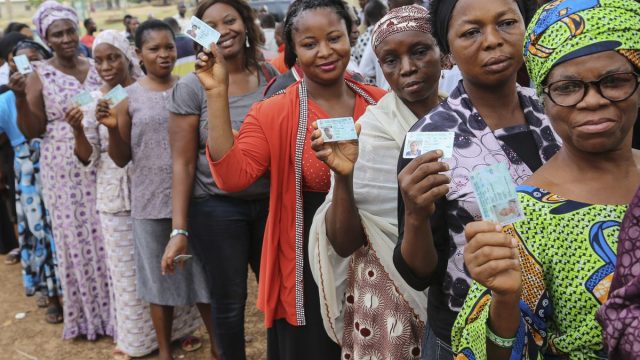
Many years ago, in a class on policy development, a teacher asked us to pay attention to what he was saying and understand how to apply it to our work rather than considering and concentrating on how to develop a political theory since even our teachers are not doing so. The statement was not well received given that it was a postgraduate class.
I spent a long time struggling with it. Over the past 25 years, despite the fact that I have contributed to the world of knowledge in some ways through my writing and verbal presentations on various topics, I have yet to develop any theories, and it would seem that I have given up.
Read Also: NIMASA, NCC partner on submarine cable regulation
In light of this, I make an open appeal to wise minds to support African democracy before this form of government completely paralyzes and is ipso facto doomed to exist forever. I challenge the Western World directly, and I do so for two main reasons. First, they gave birth to democracy, which is governed by, for, and by the people. They are also the first to mock it as the best form of government and have a better understanding of its guiding principles and laws.
A help/assistance/modification theory that will, as we have always referred to it, meet an international, universal standard is more likely to be developed by them secondly because they are more likely to gather the necessary resources and allies. The flaws and shortcomings of democracy as it is currently practiced in the majority of African nations benefit some of us, in fact, the most charitable among us in our quest to make it workable, so we are stuck trying to solve the problem from within.
Since any model that we all firmly believe in can at least serve our purposes, we don’t really care much about universal acceptance. An example of something Africa will never accept is gay marriage. We are content with and proud of our family setup. Democracy is not a bad system, in any case.
It is foolish for developed nations to use tax dollars from their citizens to support general election preparations in African nations; to allocate more resources and encourage their institutions to do the same to monitor those elections; only to be let down and dejectedly return to their home countries.
I hasten to inquire, “What do these international organizations, foreign missions, and observers do with reports of the elections they observe in African countries? For instance, what will they do with information from the recently concluded general elections in Nigeria? Every one of their reports, as it was then, expressed dissatisfaction with the way the elections were conducted and how they fell short of voter expectations. Is diction and semantics the only factors? They used words like a rigged election, percentage-based violations, vote buying, bribery, and other vocabulary-enriching terms. To what purpose? What part can the UN play in preventing the undermining of the people’s right to choose their leaders, which is the main driver of most social conflicts?
The entire world has watched for decades as the will of the people—expressed through the ballot box—has been subverted and blatantly annulled by a small number of hostage-takers of the common heritage, opponents of democracy, and masterminds of the general rot in Africa. Every election year, they arouse the hopes of citizens who fervently yearn for real change in the status quo and in the way things are done. People eagerly turn out to vote, even in difficult circumstances, believing that democracy will make their wishes come true, only to have their hopes dashed. Aside from that, a lot of money has been set aside for the elections, with all the opportunity cost that entails.
We can easily see that most elections in Africa are designed to produce predetermined results, which violates democratic norms. For instance, I’ve never been able to believe that the majority of Cameroonian voters voluntarily turn out every seven years to cast their ballots for the ill Paul Biya, who is now sort of their life president. The same is true of Uganda’s Yoweri Museveni.
Sadly, electoral umpires have demonstrated to be significant barriers to credible elections here rather than acting as midwives. This results from the widespread problem of shoddy institutions. None of them checkmates the other; they all follow the whims of the few people who are currently in charge. Additionally, those with a sacred mindset and principles are forced or persuaded to follow the same dishonorable path. It is very depressing to see security forces involved in this.
Therefore, any solution under consideration must carefully consider how to ensure the separation of these institutions from ephemeral political offices. I am aware that having strong institutions will also bring about some order in how society and the government function, in part by putting a check on the West’s exploitation of this region. However, this will ultimately lessen Africa’s nuisance value to the rest of the world, so there is no need to worry.
A typical Nigerian will easily question several aspects of democracy’s operations as practiced here, including the level of greed and corruption on display. This is especially true when the conduct of elections, which is a fundamental and crucial aspect of democracy, is tainted. In the absence of a working model, we will create our own one, no matter how rudimentary, in the West, which introduced it and purports to defend it.
My former teacher’s perspective on our unique circumstance is now more understandable to me because of our inability to apply a model that has proven successful in other contexts to address our governmental problems and our inability to come up with alternatives for rigged elections.